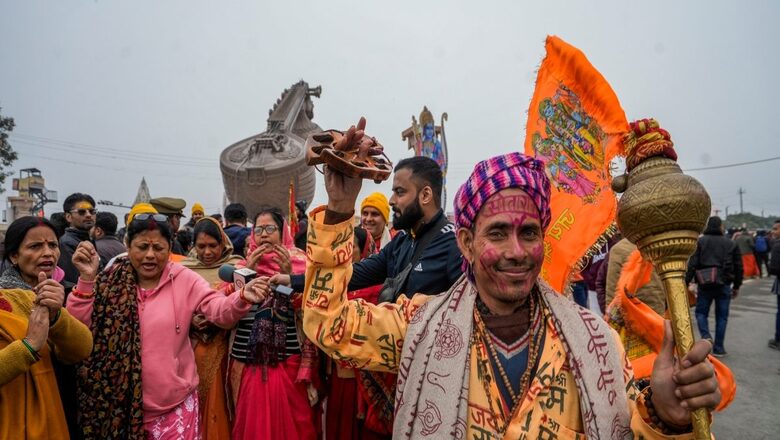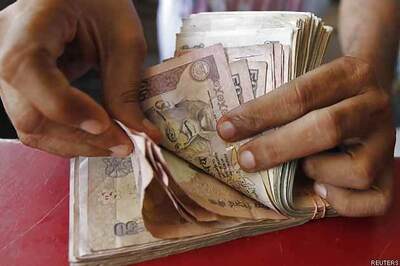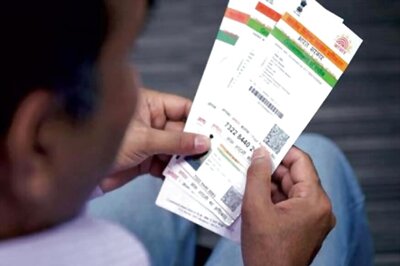
views
Lord Ram is not just a mythical figure or literary character caught in the scope of an epic. He determines the Hindu conception history. The Hindu social imagination aspires to actualise an archetype of Ram Rajya into an achievable empirical reality. His Pran Pratishtha on January 22, 2024, in the new state-of-the-art temple that incredibly combines tradition with modernity, explains the cultural and political relevance of Shri Ram for the Hindus and the final delivery of justice, though a long-awaited one.
It was the Mughal Emperor Babur who built the Babri Masjid in 1528 by demolishing the Ram temple in Ayodhya. For him, this was neither an exceptional event nor an accidental one. Iconoclasm by the Muslim rulers in medieval Bharat was recurrent and constituted a pattern, religiously sanctioned and politically executed. Assaults on Hindus and their places of worship found the most sinister consistency. The liberal historians left no stone unturned to whitewash this piece of ruthless reality. It took nearly 500 years to build the temple and reclaim the Hindu right over the site where Lord Ram was born.
What is more important to see is the Hindu patience. It has taken the legal path to reclaim the place of Shri Ram which is rightfully theirs. Had it been in any other religion, it would have led to civil war or a forceful occupation. This is the Hindu greatness because they follow the path of Lord Ram. Those who make pseudo claims of Hindu intolerance ought to reflect on the painful waiting done by the Hindus suppressing anguish and anger over 500 years to worship their God at his birthplace. It is the cultural and civilisational right of every Hindu to worship Lord Ram and yet, the waiting was 500 years long.
The Hindu resistance to Babur’s cultural aggression was consistent but in the representational logic of an ideologically coloured history, composed by the colonial and left-liberal historians, these acts of resistance did not find required expression. Reclaiming the site of Ram Janmabhoomi in a Hindu country has been difficult, and oppressive and involved prolonged legal and political hurdles. The politics of minority appeasement in post-independent India, despite painful partition, made the reclaiming procedures all the more difficult.
However, the Hindu insistence on reclamation acquired intensity in post-independent India and was complicated by the legal and political constraints from the opposing forces constituted of the Congress, left-liberals and Muslims. Several stakeholderships were brought to enmesh the Ayodhya controversy. In the whirlpool of things, what acted as a definitive challenge was the courageous acts of the karsevaks and the famous rath yatra organised by LK Advani and the BJP in 1992. These efforts spiralled into an event of mass importance and a Hindu determination to build a temple at the birthplace of Shri Ram.
In 2019, all legal intricacies and disputes were settled by the Supreme Court of India. It cleared all barriers to build the temple of Lord Ram who waited for 500 years to reconstitute the Hindus to pursue the forgotten path of Ram Rajya. The electoral promise of the BJP was finally fulfilled which gave the Hindus of Bharat and elsewhere the long-awaited pride and prestige. This is a great act of Hindu renaissance and cultural redefinition.
Prime Minister Narendra Modi conducted Bhoomi Pujan in 2020 and ensured the building of the Ram Mandir in a manner that is unique and unparalleled and inculcates a strong sense of satisfaction in the Hindus. The Modi-Yogi collaboration for this cultural project has proven to be exceptional. The grandeur and greatness witnessed in the ongoing Ayodhya project speak of how special the temple is for the BJP and the Hindus, in particular. Prime Minister Modi’s appeal to his country to light a lamp on the day of Pran Pratishtha on 22 January makes the occasion all the more special for the Hindus.
Lord Ram is not just a phenomenon of the past. He is the Hindu future. He is the cause of Hindu unity and redefinition. In the Hindu cultural imagination, Shri Ram occupies a distinct space. He has given the Hindus the perennial blueprint of how to organise and reorganise their society on the foundations of truth and dharma. The Ramayana is not a book of doctrines and commandments. It is the life of Shri Ram who never derailed from the path of dharma and truth despite the difficulties and dilemmas and set examples by living and suffering. He is called Marayada Purushottam because he never violated the limits of this world and underwent human fate despite being a God. This is what constitutes his greatness and difference. He established a moral and social order that became the archetype for the Hindu social imagination.
He is not a distant mythical reality. He speaks to us even today and continues to guide us to settle our conflicts. He is a civilisational hero who ensures the unceasing continuity of this civilisation. He is the Hindu future whose socio-political relevance for the Hindus is timeless. Therefore, his Pran Pratishtha after 500 years at his birthplace is an occasion for great celebration.
The BJP government has ensured that nothing falls short of its due. The collective Hindu support for this occasion is phenomenal. This too has caused some heartburn. The political Opposition and their curiously stitched alliance, with apparently no conviction and commitment to this country’s ancient culture, find this Hindu resurgence a definitive gain for the BJP and their increasing political irrelevance. This is seen in the electoral space. Their irrelevance is as clear as the daylight. The Opposition, instead of taking this opportune moment to respect Lord Ram and his unceasing legacy to secure their political and cultural relevance, has politicised the issue and is looking for a scope to disturb the mood of the people by adding something unsavoury to the ongoing cultural exercise.
This motive-hunting will not give them any advantage. Shri Ram is the Hindu future and it is his will that determines everything that the Hindus do. The political mudslinging is a symptom of ignorance and blindness that fails to cognise what is yet to come. The future belongs to Lord Ram.
Chandan Panda is an Assistant Professor in the Department of English at Rajiv Gandhi University (A Central University), Itanagar. Views expressed in the above piece are personal and solely that of the author. They do not necessarily reflect News18’s views.


















Comments
0 comment